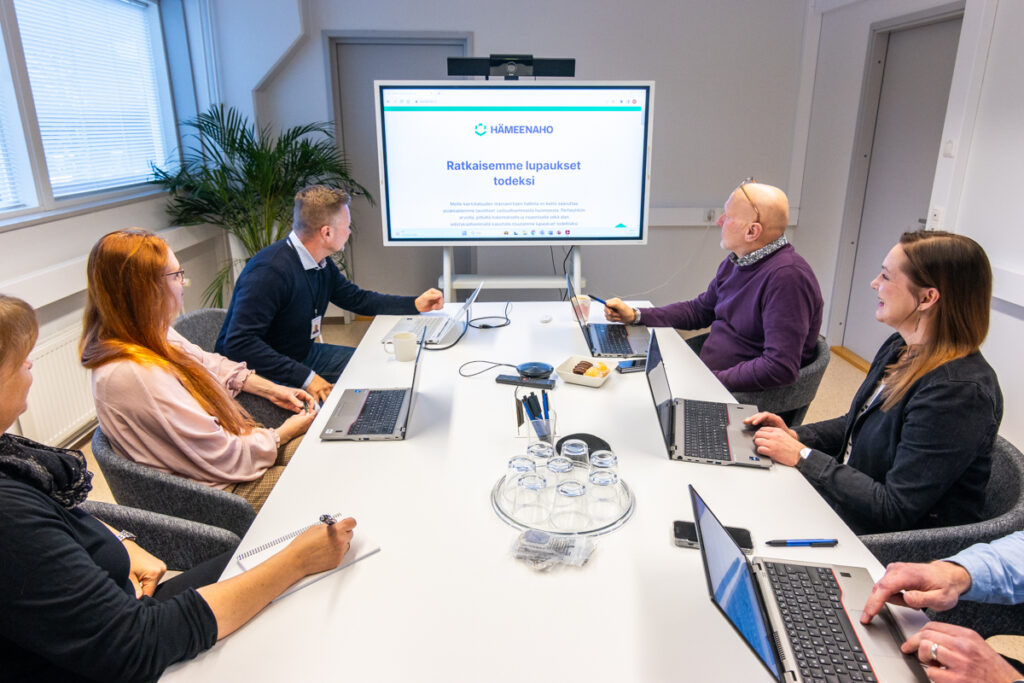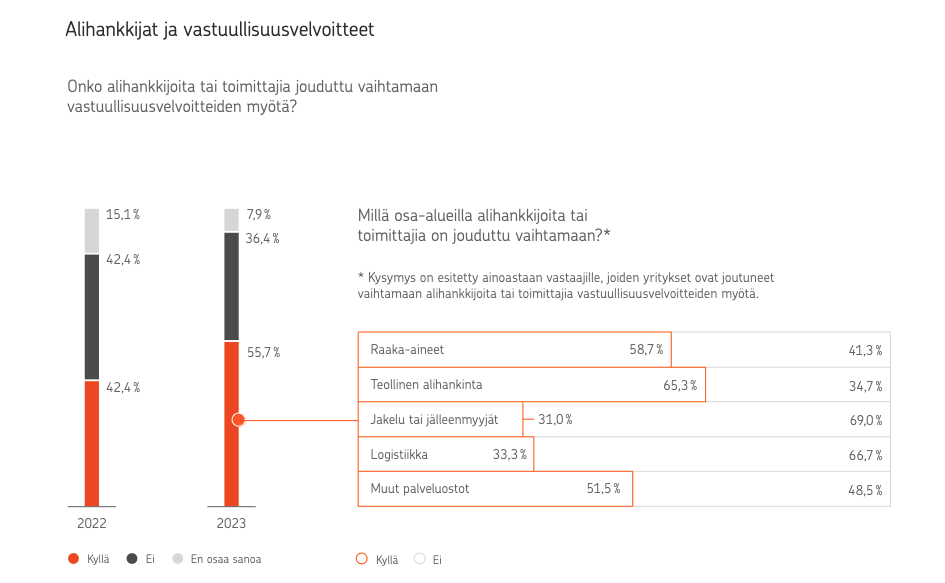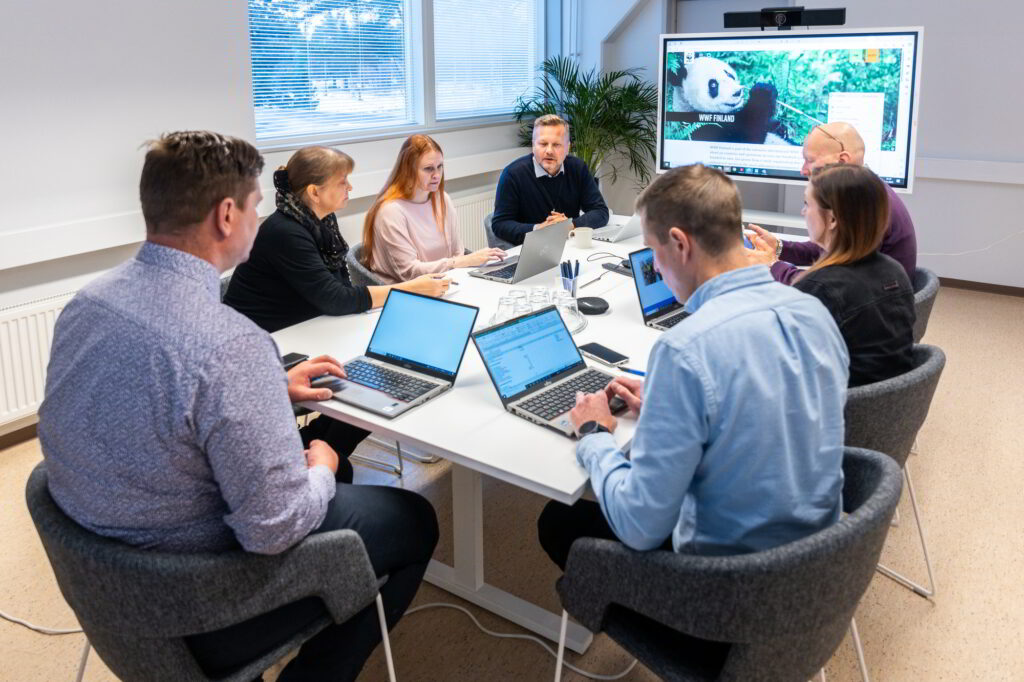
How our responsible actions impact the environment:
- Climate change prevention
- Saving energy, raw materials and other materials
- Conservation of natural resources and the eco system
- Preservation of water ways, air and soil
- Longer life cycles of products and materials through circular economy
Responsibility is not just a value, but actions that can be visibly observed in our operations – just like integrity and getting down to work.
Employer enables responsibility
The way our company enables responsible actions in every-day work is what makes it possible for us to operate responsibly. For environmental responsibility, this means sharing practical information, such as where environmentally harmful materials or recyclable materials are placed. It also means sharing and maintaining information on health and safety at work, as well as treating everyone equally.


The social impacts of our responsible actions:
- Wellbeing at work
- Clear workplace practices
- Increased communication through inclusion
- Enabling closer cooperation with tolerance and considering others
- Safe and healthy work community
- Creating jobs and economic wellbeing for the community
Company should lead by example
By operating responsibly, we as a company lead our work community by example. We fulfil business regulations, responsibilities and good mode of operation without stepping into grey areas. We maintain our business morals even when competition gets hard, pay our taxes and wages on time and keep personal information safe in a secure way.


Benefits of operating responsibly
In 2023, 55.7 per cent of large corporations changed their subcontractors and suppliers due to unmet responsibility obligations. Over half (65.5%) of these were related to industrial subcontracting.
Source: OP The survey of large corporations (picture only in finnish)
Competitions are won by top responsible operators
Responsibility is not tied to just trends or business cycles. It is a permanent state that keeps growing in significance. When we develop our operations according to the principles of responsibility, we have a competitive advantage.
For us, responsibility is also related to:
- Cost-related savings
- Risk management
- Reputation management for company and employer
- New business-related opportunities
- Ethical continuity of business operations


Principles of responsible operations at Hämeenaho
- History: We have worked in circular economy since the 1960s, and our family business principles include low hierarchy and easy communication.
- Continuous development: Our developmental operations are guided by responsibility, and above everything, it can be seen in the way we take care of our employees and consider the environmental impact of all of our operations.
- Attitude: “We are more responsible than…” We do not need to compare ourselves to other operators. We know that we are being responsible, because the foundation for responsible operations was created decades ago, and we have adopted an attitude that we want to stay in the forefront of responsibility.
- Transparency: We inform our staff company matters as they are. This is an important way for us to include our employees in the development of our company and operations.
- Integrity: We are honest with our employees, customers, partners, and other affiliates.
Responsible operations are a part of our work history. Read more:

